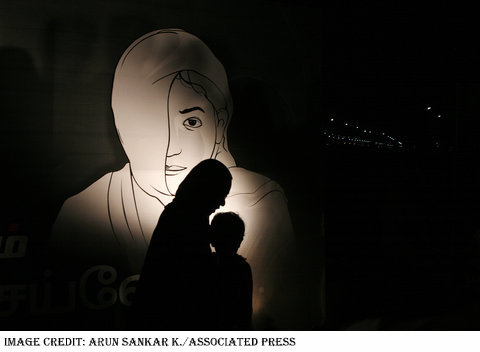
We have entered the second decade of the 21st century and claim to have become as ‘modern’ as possible. But it cannot be said when it comes to menstrual norms and practices. Be it the period check at a Bhuj college or the Sabarimala temple row, we have shown little progress as a society.
Teachers ‘check’ if women students are menstruating at Bhuj college
In a shocking incident at an all-women’s college, Shri Sahajanand Girls’ Institute situated at Bhuj in Gujarat, 68 undergraduate students were paraded to the washroom. The hostel administration complained to the principal regarding some girls entering the kitchen and going close to the temple while menstruating. The principal abused and insulted the students. Two of the students said that they were menstruating. Despite this, all the 68 hostellers were forced to remove their underwear so that it could be checked by women teachers.
Since the college is run by adherents of a religious sect, women students are forced to follow strict rules regarding menstruation. They are neither supposed to enter the temple or kitchen areas nor touch others while menstruating. It must also be noted that all of these 68 hostellers belong to very remote villages.
What is the purpose of running an educational institution if students are subjected to such humiliation? This is not only degrading but also a violation of their bodily autonomy. The hostel administration cannot make such allegations in the first place; the question of such investigation on the part of the principal is all the more unacceptable. It reflects a dangerous patriarchal mindset where women are seen to be perpetuating what they ought to be resisting.
When such taboos are openly practiced at this college, it seems highly unlikely that menstrual awareness workshops or sex education is provided over there. Such an incident at an educational institution which is supposed to talk about how such practices are regressive is shameful. There must be strict legal action against the principal and teachers involved. But it would take something more to rid them from such a psyche.
Impure women and distance from the sacred
In a large number of homes, grandmothers, mothers and aunts forbid young girls from going to the temple while they are menstruating. They might be asked to sleep on the floor, not touch anybody and stay away from the pooja ghar or place of worship. Why is menstruation any different from any other bodily function such as digestion, excretion, or respiration? The notion of purity and impurity is Brahminical in nature as it calls for segregation, isolation and exclusion. It is the foundation on which the entire caste hierarchy is based. How can women be impure when they perform the most important function of procreation? The world would not have progressed had it not been for women.
Menstruating women are barred from entering religious spaces such as a temple and its sanctum sanctorum. Despite Kerala being the country’s most developed state in terms of levels of education and literacy, the Sabarimala temple row proves that education does not necessarily make a society progressive. In spite of the court’s intervention, most people in Kerala are not ready to allow women aged 10 to 50 inside the temple. What would it take to change this?
The whisper around menstruation
Advertisements of sanitary napkins continue to show blue liquids instead of blood on the pads. When every woman on earth menstruates, why is there a taboo around it? Why is the name of a large sanitary napkin brand ‘whisper’? It is time to stop whispering and bring menstruation into our daily conversations. For how long will we keep using code words for genitalia and periods? That silence needs to be broken because it reinforces these very taboos and practices. It is women who need to first understand that it is normal and that there is nothing unclean or impure about it. Change is possible only when the conversation begins.













